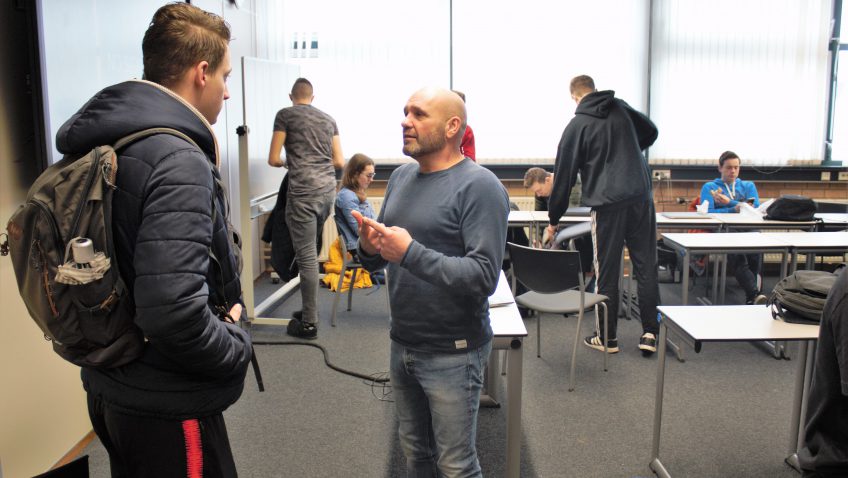Executive board wants flexible testing fast
- Windesheim will receive 16 million euros extra annually to improve the quality of education.
- The money will mostly be spend on the coaching of students.
The Executive board has presented a preposition for the allocation of these extra funds from the state to the Central Participation Council. It lists three ‘focus areas’: more student guidance, more control for students on their own study pathway, and a stronger link between theory and practice. Furthermore, the board wants Windesheim to develop itself to become a ‘learning network’, which needs to contribute to the professionalisation of teachers.
All universities of applied sciences will receive extra funding up to 2024, which is possible because of the abolition of the basic grant. They need to clearly invest into the development of the quality of education, the so-called Quality agreements. Windesheim invests 5.6 million euros into that area for 2019, of which 1.8 million hasn’t been allocated yet. After that the annual sum will slowly increase to 15.8 million euro. The board wants, together with the Central Participation Council, to set a long-term plan for the next five years towards the end of January.
The council is charmed by the wishes of the board to quickly make work of possibilities for flexible testing. The council put this at the top of their to-do list. “This is a common desire among the students”, says CPC chairman Cor Niks.
The board expects teachers to pay more attention to student well-being, coaching, learning outcomes and the learning pathway to students choose. If possible, there will be specialised coaches and organisers for learning pathway. Next to that, teachers will more often organise internships, multidisciplinary projects and workplace teaching. Teachers will also be busy with making flexible testing possible and creating a suitable electronic learning environment. The board offers the teams room to have additional teachers worth 150 FTE (full-time equivalent) in five years.
The Central Participation Council would love to see every student get a fixed student career counsellor and a fixed ‘student-buddy’: a higher-year student with a comparable pre-education. “Students have a need for smallness of scale, which will improve social cohesion and study success and lower the workload. Within this ‘coaching triangle’ can be paid extra attention to citizenship and a critical attitude”, says Cor Niks.
At the end of this month the Executive board needs to make a decision on the spending targets. The final plan will be assessed by accreditation body Nvao this autumn.
